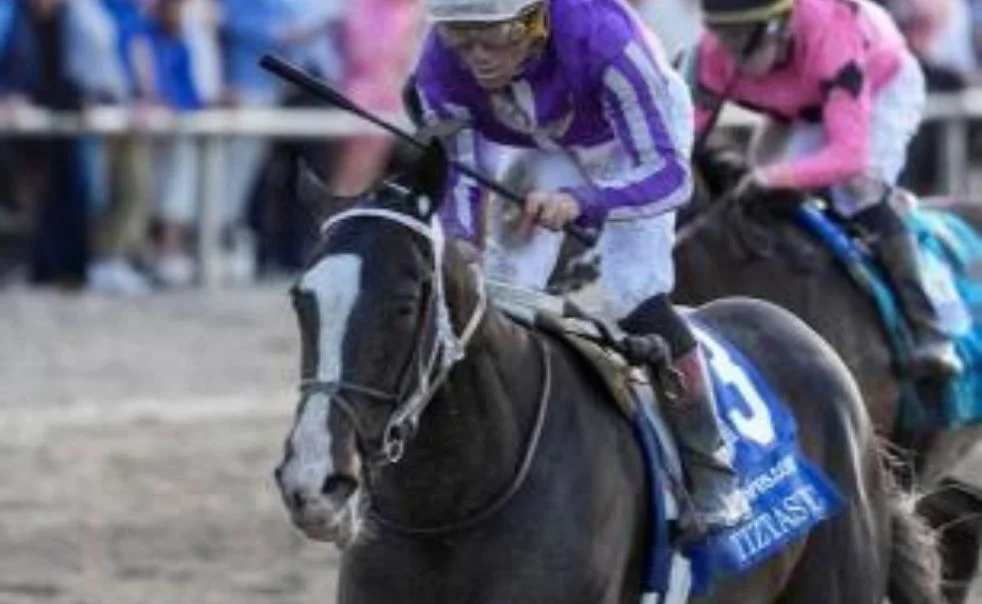Louisiana Supreme Court Strikes Down Horse Racing Law

Elle
Mar 27th 2025
Likes
Share:
On Friday, the Louisiana Supreme Court struck down a horse racing law it had passed in 2021 that allowed for historical horse racing machines in the state without public vote as unconstitutional. Justice Jeanette Theriot Knoll wrote the opinion citing a requirement in the constitution that mandates a majority vote in all parishes before any new form of online gambling legislation can be created.
The horse racing law in question, known as Act 437, was enacted in 2021 to amend the Louisiana Supreme Court’s pari-mutuel wagering statute, incorporating HHR under the regulation of the Louisiana Racing Commission. The legislation allowed racetracks to establish up to five off-site locations each, where patrons could use HHR machines.
HHR operates similarly to slot machines but determines outcomes based on previously conducted horse races. Essentially, the notion arose in Arkansas back in 2000, after patent filings in 1998. The machines began to unfold in different states as a form of alternative betting related to horse racing.
The lawsuit against Act 437 was brought by plaintiffs residing in parishes where HHR machines were operational or could be introduced under the law. Several plaintiffs also had financial stakes in other types of gaming, such as video poker, which potentially faced competition from HHR machines.
The crux of this case lies in Article XII, Section 6(C) of the Constitution Louisiana Supreme Court, which provision was added in 1996. This provision requires that a local referendum be held before introducing any new online gambling legislation in an area where the aforementioned was previously deemed illegal. Act 437 bypassed this requirement by expanding the definition of pari-mutuel wagering to include HHR.
The defendants in this action, Fair Grounds and the Louisiana Supreme Court stated that there was no requirement for voter approval because pari-mutuel wagering on horseracing existed before the constitutional amendment. The other parties, Delta Downs and Evangeline Downs were originally parties to the lawsuit, but they entered a consent judgment and withdrew from the case without making a formal statement.
The plaintiffs contended that HHR was not merely an extension of pari-mutuel wagering but a fundamentally new online gambling legislation format. Given that the constitutional amendment required a public vote for any new type of gaming, they argued Act 437 violated state horse racing law.
In March 2024, a trial court sided with the plaintiffs, granting summary judgment and ruling that HHR constituted a new type of online gambling legislation requiring voter approval. The defendants appealed the decision to the Louisiana Supreme Court.
On Friday, Justice Knoll upheld the lower court’s ruling, emphasizing that HHR did not exist before the 1996 constitutional amendment. She pointed out that traditional horse racing wagers in the Louisiana Supreme Court were limited to live races, either attended in person or viewed via simulcast. Since HHR machines were first developed after the amendment’s passage, they could not be considered an existing type of gaming.
“Act 437 authorizes a new type of gaming not authorized in Louisiana Supreme Court before October 15, 1996,” Justice Knoll wrote in her opinion. “Thus, the Louisiana Supreme Court requires prior voter approval of historical horse racing in a local election.”
The Supreme Court’s ruling effectively invalidates Act 437, preventing further expansion of HHR in the Louisiana Supreme Court without a parish-level referendum. Existing HHR facilities in the state may now face legal challenges or potential closures.
The decision also reinforces the importance of voter approval in gambling-related legislation. Any future efforts to introduce HHR in the Louisiana Supreme Court will require a structured approach that includes public input through local elections.
This decision, however, is a setback for racetracks and other gambling operators. HHR, to these operators, meant an additional way of generating revenue. Proponents of the machines argue further that they provide financial assistance to the horse racing industry-having suffered from declining attendance and wagering on live racing events.
In opposition, such critics of Act 437 have termed the judgment as a triumph for the rights of voters and transparency in the expansion of gambling. They argue against the use of legislative shortcuts in reaching constitutional provisions for the grant in which local communities would voice their say about gambling policy.
While the Supreme Court’s decision is final, the debate over HHR in Louisiana is unlikely to end. Lawmakers who support the machines may push for a statewide or parish-specific referendum to legalize HHR through voter approval. Meanwhile, gambling opponents could seek further legal action to ensure compliance with constitutional requirements.
So far, nothing has changed with gambling in Louisiana, since HHR machines are outlawed unless specifically approved by voters. This decision reaffirms the heavy-handed approach the state takes toward regulating gambling and the obstacles that arise each time horse racing statutes attempt to sidestep constitutional provisions.
